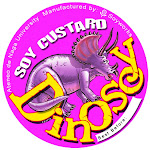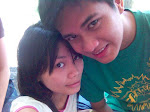Introduction
Perfection is defined as the quality of something that is good or suitable as it can be (Microsoft Encarta 2007). Beauty and superb qualities or traits are some of the common basis of man to judge a thing to be of perfect attributes. Perfection leaves minimal probability for errors since it is characterized by a genuine universal function accepted by most to be something that is difficult to be attained.
People study the biography of great men and women of the nation for the fact that it serves as an important and significant study of the nation’s history. Great men and women who take part in history needed to be studied in the quest of the unveiling of the truth about the past. Jose Rizal, being a person of great personage took part in the Philippine history by making use of his writing skills to produce novels and other written documents that promotes freedom of the Filipinos, specifically through having reforms which ultimately led towards security of human dignity.
Rizal was a perfect person in the sense that he has admirable characteristics that are worth idolizing. He was an amazing man who was driven by his nationalistic aims. He dreamt of a perfect
The will to perfection drove Jose Rizal to reach for the highest attainable standard for himself and for his motherland. He lived his life in excellence and was able to accomplish a lot of things that were of great recognition. And, in line with this personal goal, was a deeper aspiration to uplift the welfare of his townspeople from severe oppression by the Spanish regime. But how deep really is Rizal’s commitment towards his goals of perfection? What are the some of the things he has done to prove the magnitude of his craving towards valuation for perfection?
Jose Rizal was a man willed towards attaining perfection. Analysis of his biography and factors that influence his motivation towards accomplishment of his goals lead people towards understanding that he was indeed a perfect person who was behind a societal transition. Rizal was a perfect person because he was able to extend his capacity to enact changes beyond his potentiality. He was able to maximize the use of his time to learning new concepts that enhances his knowledge in various fields. This knowledge-seeking characteristic was shown even during his young age.
“Young Rizal was a peace-loving boy. He would not start an argument nor pick up a fight. In the school ground he played with other boys, but he would not spend all his leisure hours with them. After a game or two, he would leave them and retreat to a shady place to read his book.”
Rizal was a perfect man because he always followed a balanced activity between his body and mind. He may be sickly and frail but it never regarded such as something that would hinder him from any physical activities. In fact, in his later age, he was able to become an excellent fencer and taught self-defense together with academic subjects with his pupils in Dapitan. He believed that when a man is free, he should be able to defend himself and his freedom. He envisioned this for the people, which is why he established a school for boys in addition to his practice of medicine.
Rizal was an ambitious man, thorough in his performance and firm in his decision. For his needs he preferred to depend first on what he could do and afford instead of depending on other people. For this reason, he strove to be first in anything he tried to do so that the opportunity to succeed would fall on him before it would to somebody else. Rizal made use and relied on his abilities to solve simple problems that he faced in his time. For instance, when he was still a student at the
Rizal was devoted towards having a perfect society for his countrymen- a society where all people are able to live with freedom from servitude, to have access to life’s basic needs, and to be have self-esteem or proud of their nationality. Rizal dreamt of a society where all are living peacefully and are given equal right and opportunity. He wanted a society that is just and promotes equilibrium in treating the various classes- the rich and the poor. He advocated freedom more than independence because he was able to foresee that the country was not ready to stand on its own. Freedom need not seek separation from Spanish colonization but it means recognition of racial equality between the Filipinos and Spaniards. Forbes (1969) shared the following reason for the enthusiastic American attitude of Rizal:
“Rizal never advocated independence, nor did he advocate armed resistance to the government. He urged reform from within by publicity, by public education, and appeal to public conscience.”
Rizal’s aim was never to resort to forceful battle to regain separation. His aim was unity and mutual relationship with
“…under the present circumstances, we do not want separation from
Rizal believed that education was one thing that completes the full-humanity of man. It benefits both individual and the society. Thus, it was believed that wise education is the mother of all virtues. Contrary to what Renato Constantino said in his pamphlet Veneration without Understanding (Third National Rizal Lecture December 30, 1969), education, like aspiration for freedom is a natural prerogative and not merely something to be deserved, like a medal for good behavior. He tagged the youth as the “hope of the nation”, the ultimate key towards a brighter tomorrow. Such is embedded in his writings, along with the goal of promoting nationalism of Filipinos in particular as a core principle towards development.
Rizal: A Filipino Hero Indeed
Rizal is the
“And now, gentlemen, you must have a national hero. In these fateful words, addressed by then Civil Governor W. H. Taft to the Filipino members of the civil commission, Pardo de Tavera, Legarda and Luzuriaga, lay the genesis of Rozal day… IN the sunsequent discussion in which the rival merits of the revolutionary heroes were considered, the fin la choice- now universally acclaimed a wise one- was Rizal. And so was history made.”
It was therefore been alleged falsely that Rizal was chosen as a hero to benefit the reign of the Americans as a new colonizer. A noble Rizalist, Professor Esteban A. De Ocampo further added:
“Who made Rizal the foremost national hero of the
Likewise, Theodore Friend in his book, Between Two Empires says that Taft “with other American colonial officials and some conservative Filipinos, chose him (Rizal) as a model hero over other contestants- Aguinaldo too militant, Bonifacio too radical, Mabini unregenerate.”
A person, who is worth idolizing, showcases characteristics that emanate genuine perfection. Rizal was a person who carries with him qualities that are somehow close to perfection. He was a good child, a good student, a good teacher, a good friend and a good citizen of the country. He was humble despite his accomplishments, thus, he never regarded himself as someone who is not one with the masses.
Rizal was very motivated to lead the
He was a common person just like all of us, but his remarkable deeds were really of great distinction. He may be a full-fledged womanizer, but he never lost grip of his well-set purpose of prioritizing the welfare of his countrymen who were experiencing the sufferings caused by the brutalities of the colonizers. The gruesome attempts of his people were of no effect, making Rizal realize the urgency to make further action towards relieving their hopelessness, an impact of their desolate despair and sorrow. His unique style of making use of pen instead of swords and bolos to attack the injustice of the colonizers made him a unique personage, in fact a hero who unlike heroes of foreign countries who are autocratic and who bestowed military leadership, promoted peaceful attempts that avoid bloodshed to regain freedom.
Rizal’s family greatly shaped his individuality and influenced his thought of uplifting the people from their miseries, and ultimately eradicating the societal crisis faced by the country in his time. He came from a religious and prominent family and was a good brother to his siblings. His mother, Teodora Alonso-Realonda, being his first teacher, introduced him to God and spiritual life, maintained his strong faith and gave him encouragement to develop his gift of intelligence. He felt genuine love and care from his family who supported his quest of unveiling his potentials even in his early childhood years.
Rizal was an intelligent man. During his years as a student in prestigious universities and even in his studies at Biñan with professor Justiniano, he has shown an amazing craving to learn more and grasp new ideas about the life's realities, undoubtedly the clear reason for his excellent grades. He balances “work” with “play”, a value that is worth idolizing by the young people of today.
He is being idolized today because he is well accepted as a national hero by the Filipinos. No other hero in the course of Philippine history that would match his greatness and will-power. On the 1973 Rizal Day, President Ferdinand E. Marcos made the following observation about the Filipino hero:
“…if Rizal seems to many of us first among his great contemporaries, and first among the nation’s heroes, it is no doubt because he alone among these men distilled in his work a vision of Filipino nationhood that could serve not only his generation, but the succeeding generations of his countrymen. If there ever was a visionary among us, it was he. If ever there was a generalist and student of the world among us, it was he. And the distillation of his experience through the medium of literature more than perhaps his martyrdom, enabled him to speak to his countrymen long after his death.”
Rizal’s Excellence
Jose Rizal, being our national hero, is considered a model for perfection of Filipinos because of his amazing craving for excellence. He was a man with admirable traits and his amazing quest for understanding and giving solution the country’s societal dilemmas led him to formulate moral legacies which are of universal application even in the present-day scenario.
Rizal lived by example of upholding excellence in his studies. In his studies in Ateneo, the classes were divided into groups of interns and externs: the first constituted the Roman Empiore and the second, Carthaginian Enpire. In each empire there were five dignitaries: Emperor, Tribune, Decurion, Centurion and Standard-Bearer. Rizal, according to Ozaeta (1966), was able to practice excellence by obtaining expence marks in all the subjects and accessits in the examination, making him reign as the emperor in the empire where he belonged. Thus,
“As a newcomer, Jose was at first put at the tail of the class, but he was soon promoted and kept on being promoted so that at the end of one month he had attained to the rank of Emperor…”
Rizal’s teachings embody human virtues, the core of his philosophy. He formulated universal moral legacies which are solutions towards economic progress and promotion of human dignity. The richness of his ideas and nobility of his examples were the things that were anchored on the center of his enduring greatness. Thus, according to Capino et al (2005), Rizal uphold leading values of love of God, purity and idealism, noble conduct, love of fellowmen, love of parents, charity, love of country, courage, will-power, honesty, devotion to truth, self-sacrifice, fortitude, serenity, self-control, initiative, tolerance, obedience, courtesy and politeness, thrift, gratitude, love for justice and living by example.
The fact that a number of books about him are being published each year, books of myth and life-stories, show that there is so much that his people would like to tell the world about him out of the fullness of their hearts and imaginations. Through the years, authors continue to recall and do researches about the bits of incidents about him to share to the Filipino masses and even to foreign people the real magnitude of Rizal’s greatness. Authors give their readers a glimpse of the characteristics of the Philippine hero through their published works that illustrate the deeds he performed beyond compare, the educational achievements he received, and the remarkable crowning glory of his patriotic devotion- his death. Incorporating the teachings of Rizal in the present day situation will ultimately lead towards promotion of higher values and noble aspirations.
Rizal is being honored not just by the Filipinos but foreign people as well. For instance, one TV show in GMA7 called Pinoy Meets World show that there are, at present, group of Rizalian cults in
Man of Great Honor
Jose Protacio Rizal Mercado y Alonzo Realonda y Quintos was a man of great talents. At an early age, he showcased amazing skill in sculpture and the arts. A compilation of Rizal’s deeds were presented in the 1974 book of Alfonso
Rizal will continue to live in the hearts of the Filipinos because we regard him as having the characteristics of a true Filipino. He has a humble heart and a deep passion towards serving his countrymen. His amazing deeds were all in line with promotion of the welfare of his homeland. His dedication was so strong that he stood for it even if it would mean his death. He was intelligent, fully educated man and was able to exercise his learning in propagating the moral legacies he formulated which are of universal application. He was a great leader who advocated freedom, justice and truth and incorporated his love for the country in ever decision he made. It was this love for the country that made him a distinct leader- a person who deserves a great respect.
Faces of a Perfect Hero
Rizal practiced a number of amazing deeds that make him so amazing. Zaide (1988) regarded the national hero as a philologist because he was born a linguist. Rizal believed with Baron Wilhelm von Humbold, famous German philologist that Tagalog and other Philippine languages belong to the Malayo-Polynesian linguistic family, mother tongue of all Pacific races.
Rizal was not an inventive wizard like Thomas Edison, but he, above and beyond all common men, had certain talent for invention. Zaide (1988) discussed that Rizal invented a cigarette lighter (mechanism based on compressed air) which he called sulpakan and was sent to Blumentritt in 1887 as a gift. Also, during his exile in Dapitan, he invented a wooden machine that could manufacture 6,000 bricks daily.
He, unknown to many, was a sportsman. He took up gymnastic exercises in Ateneo and fencing and shooting lessons while he was studying medicine. To prove his love for sports, he opened a gymnasium in Calamba where he introduced European sports such as boxing, fencing, pistol shooting, wrestling, and gymnastics. He also encouraged native sports such as arnis and sipa. Rizal’s physical fitness and dexterity in judo and wrestling were also fascinating and were showcased in his encounter with a Augustinian friar in
He was a well-traveled person because for him, travel is both a delightful recreation and an enlightening education. He was able to travel to Europe,
He also acquired knowledge on geography through his travels in many countries of the world, by reading geography books and maps, and associating with famous geographers in the world, including Dr. W. Joset of
He was an artist- a painter, a sculptor, a dramatist and a musician. At an early age, he manifested an amazing inclination in the arts especially in painting. He painted a door on the wall which was thought to be so genuine that a lot of people, including the great artist Juan Luna tend to be deceived by it. He drew money on a plate which looked so real that the manager to whom the money was paid has not noticed that there was no money and just a realistic picture of the bill embossed on the face of a fragile plate. He even painted a picture of himself when he was only fifteen years old. He was also a sculptor and in his boyhood days, he loved to model figures of birds, butterflies and flowers out of clay and wax and to carve out wood with his sharp knife images of persons and animals. He was interested in drama. When he was still a boy, he wrote a Tagalog comedia staged in Calamba during the town fiesta. The governadorcillo of Paete liked it so much that he bought it for two pesos. Lastly, he also studied music, was able to sing a little and play the piano and the flute.
Rizal was a magnificent writer. He was a poet, essayist, novelist, and historian. He wrote a number of poems of different topics such as his youth, love life, and his other views about life. A few of his poems include To the Filipino Youth, To my Fellow Children, To the Flowers of Heidelberg, and Last Farewell. He also wrote essays which depict his being a nationalist and two controversial novels which are now an important part of the Philippine Literature- Noli Me Tangere and El Filibusterismo. Thus, he was a historian who disgusted the early books on Philippine history as generally biased and full of errors.
But the best trait that the Philippine national hero possessed was his being a nationalist. He exercised his profession as a doctor to reach out to his countrymen and serve those who are in need of his service without asking for anything in return. He was a physician, an amazing doctor and an ophthalmologist. He used his skill not to promote his own welfare and get rich but rather to give back to his motherland the things that he has accomplished. That is one big trait that is worth recognizing, a true indication of how perfect Rizal is.
NOT so Perfect?
Several books were published to question Rizal’s qualities to be called the
Rizal was never frightened to face the Spaniards in a battle. But like an educated person, his rationale took over his emotions and it was manifested in the decision he made of not supporting the Revolution. He never rejected the idea of a revolution, but in a true ilustrado sense, he believed that revolution need not resort to bloodshed. He chose to make use of his writings to attack the brutalities of the colonizers against the Filipinos and he was brave enough to stand by what he did even on his last breath. He analyzed the situation and realized that the Filipinos were not ready for a physical revolution. What Rizal wanted was equality with the peninsulares through having reforms that would benefit the Filipino masses in practical and economic sense.
Another book which tries to depict the negative sides of Rizal was the book by R. M. Bernardo entitled Rizal, Josephine and the Jesuits. It revealed important facts about Rizal and some analysis of such which led to discovery that Rizal was still an ordinary man who is not so perfect. The depth of Rizal scientific rationalism was questioned. It has been said that actually held his back while he was in his barren cell, On December 30, Rizal said, as quoted by Fr. Villaroel: “I should have limited myself to my studies. Rizal, according to him did not desire to free the
Rizal said [in the death cell]: “Father, I neither fought nor intended to fight nor am I good at fighting. I desired nothing more than to be left alone with my books…Now, I know… my great pride has led me here.”
It was like saying that Rizal never got plans of pursuing a goal of setting free the
“Forget that Rizal was unique, great, and wise: a true patriot and a philosopher of human dignity. His written retraction says he died a submissive lackey, pro-Spanish anti-revolution coward… Forget his Ultimo Adios. It was not a deathbed call to arms for freedom and independence against friardom and
There are indeed a few people who contested the greatness of Rizal and distinguishing among the right and the unreliable facts would give people a confused mind about the accomplishments, letters and works of Rizal. Prejudices will never be separated with man’s desire to prove things that are of no significance. There is no question on the impact of Rizal to Philippine history and his persuasive capacity to create a driving force that led people to fight for their rights. The question lies not on the person that he was. The magnitude of his acts was amazing and that is sufficient for people to call him as a perfect being.
Early in 1997, Oregon Professor Glenn May shocked Philippine historians, teachers, and readers with his book on second greatest Philippine hero’s invented larger-than-life persona. “Their stories of Andres Bonifacio came contaminated- directly, subtly, [and] even unconsciously- from dubious sources, some most likely forged.” This clearly shows that oftentimes, authors tend to fabricate stories of famous people just for their works to be talked about. Some of written documents about Rizal’s life, perhaps like those of a few of other Philippines’ heroes, may be questionable and in fact exaggerated (like some apparitions Rizal made after his death found in the later chapters of Francisco’s book, magical healing powers, psychic abilities, magical handkerchief that can cure almost any ailments, and more). But the real issue of his perfection lies on the impact of his life to societal change- and there is no doubt that Rizal created an important chapter in the nation’s history.
Rizal’s personage was being questioned in variety of personal reasons. Rizal’s works actually made a mark in history and somehow affected groups of people, especially religious groups. Rizal’s writings, being controversial by nature, jeopardized the sanctity and genuineness of these groups. Fr. Sanchez., S.J. (1897) who was a friend to Rizal even begged for the national hero not to write against the church’s doings. He said, “I asked Rizal never to mention our Society of Jesus in his future writings… it causes us harm without being our fault.” This was a clear indication of Rizal’s huge impact in the societal restructuring.
It has been said that to err is human and nobody is perfect. But Filipinos can surely find a person close to perfection in the person of Rizal. After all, perfection, in this context, does not necessarily mean complete severance from erroneous acts. Rizal made wrong acts in his life but he was able to deal with it responsibly, thus, making him a person that he was. He was a man who carried with his name an extreme desire for excellence, making him inevitably a person worth idolizing.
Perfection is not just associated with the physical structure of things but also on its beauty. Rizal’s will to perfection was aimed towards having a beautiful country- a country that is peaceful and has a concretized sets of laws that guides human conduct taking into account the human rights and dignity. He dreamt of a nation where all are free and ready to fight for their rights. He said that it was through education of his countrymen that “they can attain their highest potential and become masters of their own destiny.” People must learn to educate themselves in the process of struggling for freedom and liberty.
A book, Rizal, Educator and Economist, used in certain Philippine schools supports the desire of the national hero to perfection through education by quoting a portion of Rizal’s manifesto on December 15, 1896 which states:
“…I am one most anxious for liberties for our country, and I am still desirous of them. But I place as a prior condition the education of the people, that by means of instruction and industry, our country may have an individuality of its own and make itself worthy of their liberties.”
Rizal had a goal of exalting the intelligence and dignity of the individual, by loving justice, right and greatness, even to the extent of dying for them. He believed that through attaining such, his will towards perfection, the perfection of the Filipino society, will be accomplished. And that is the Filipino hero, Jose Rizal, perfectly Filipino by heart, desiring perfectly beautiful
Summary and Conclusion
Jose Rizal’s commitment to gain perfection for himself and for his motherland is so amazing. As an individual, he was able to practice his knowledge about various fields. He was an inventor, a sportsman, a physicist, a traveler, an ophthalmologist, a painter, a sculptor, a dramatist, a geographer, an anthropologist, a poet, an essayist, a novelist, a historian, an economist, an engineer, a musician, an anagram decoder, a humorist and a full-pledged nationalist. During his educational days, he was a very excellent student. He even became the emperor of his empire after his first month in Ateneo Municipal. In addition, he formulated moral legacies that are of universal application.
Rizal’s aims were generally towards societal restructuring that would uplift the welfare of the Filipinos. He demanded that Filipinos should be treated as racial equals of Spaniards, have representation in the Spanish Cortes as members of an autonomous Spanish territory enjoying human rights and freedoms of thought, religion, press, speech, assembly and other human rights. He firmly believed that in those times, the
There are several writers who question Rizal integrity, deeds, writings, ideals and philosophies. But the real measure of his being perfect lies not on the person that he is (if the biography of Rizal was truly fabricated), but on the person that he has become. Rizal became the national hero of the
And that is the main reason of his perfection. He was a perfect man who have had accomplished perfect deeds.
Bibliography and References
Microsoft® Encarta® 2007. © 1993-2006 Microsoft Corporation.
Philippine Free Press, December 28, 1946
Rizal and Other Great Filipinos, Gregorio and Sonia Zaide, Part I and II, pp1-72, National Book Store, Inc, 1988.
Rizal: Buhay at Ideolohiya, Ligaya Tiamson Rubin, Arthur P. Casanova, ana Isabel D. Caguicla, Heracleo D. Lagrada and Ariel B. Vidanes, Chapter V, And Pag-aaral ni Rizal, pgs 19-23, Rex Printing Company Inc., 2001
Rizal, Educator and Economist, High school Textbook
Rizal in Life and Legends, retold and edited by Alfonso P. Santos, Allied Printing and Binding Co., 1974.
Rizal, Josephine and the Jesuits, The Poem-Vindicated World Hero from the
Rizal’s Life, Works and Writings: Their Impact on Our National Identity, Diosdado G. Capino, Ma. Minerva A. Gonzalez, Filipinas E. Pineda Rizals’s Moral Legacies For Our Daily Life, Chapter 7, pg 92-124, Goodwill Trading Co., Inc , 2005
Rizal: Makabayan at Martyr, Austin Coates translated by Nilo S. Ocampo, University of the Philippines Press, Diliman Quezon City, 1995.
Pride of the Malay Race, A biography of Jose Rizal, Translated from the Spanish of Rafael Pama by Roman Ozaeta, Prentice-Hall, Inc, 1966.
Veneration without Understanding, Renato Constantino, Third National Rizal Lecture, December 30, 1969.
Who made Rizal Our Foremost National Hero, and Why?, Zaide and Zaide, op. cit. Appendix A. pp.271-286



.jpg)








.jpg)




